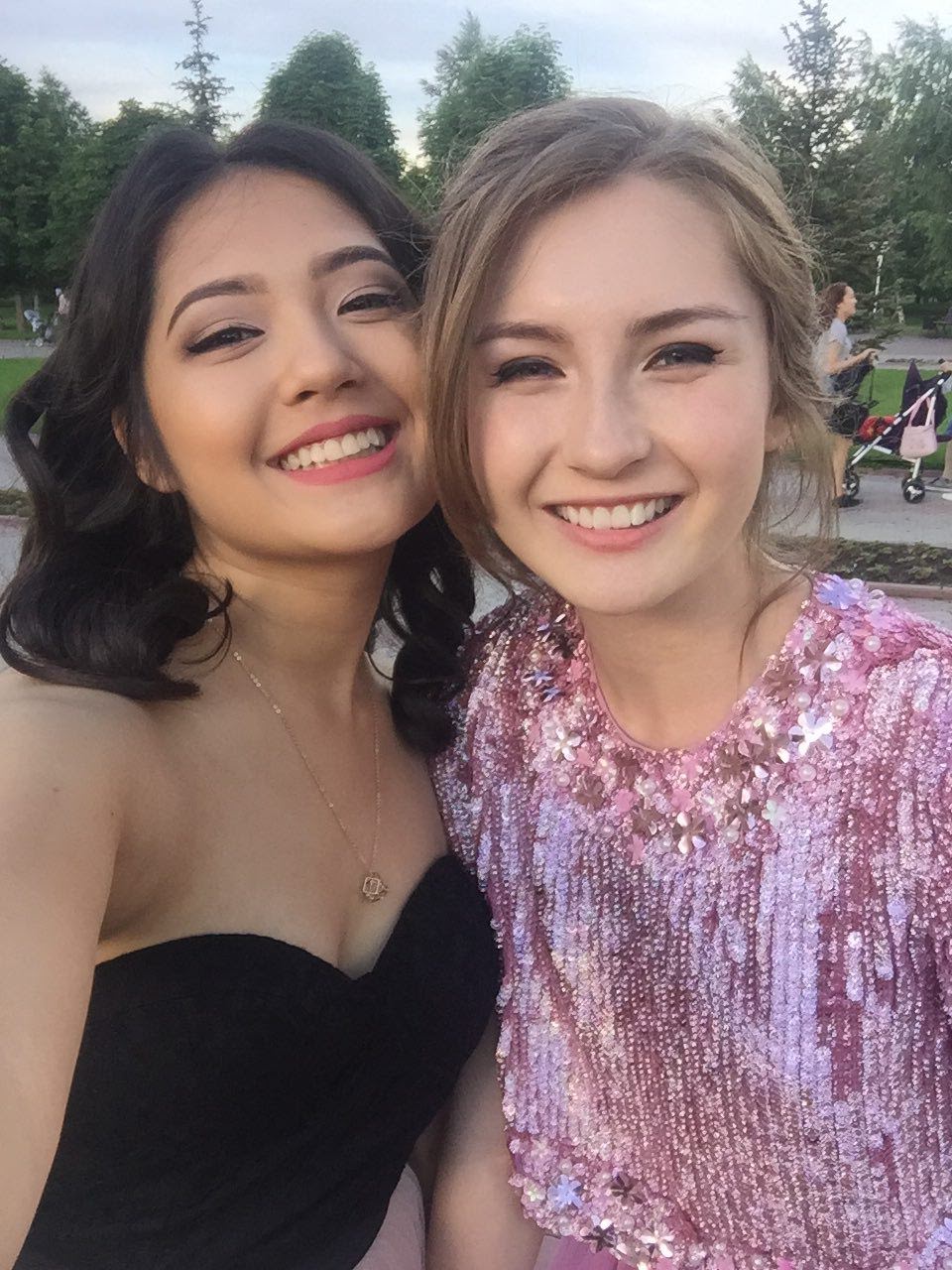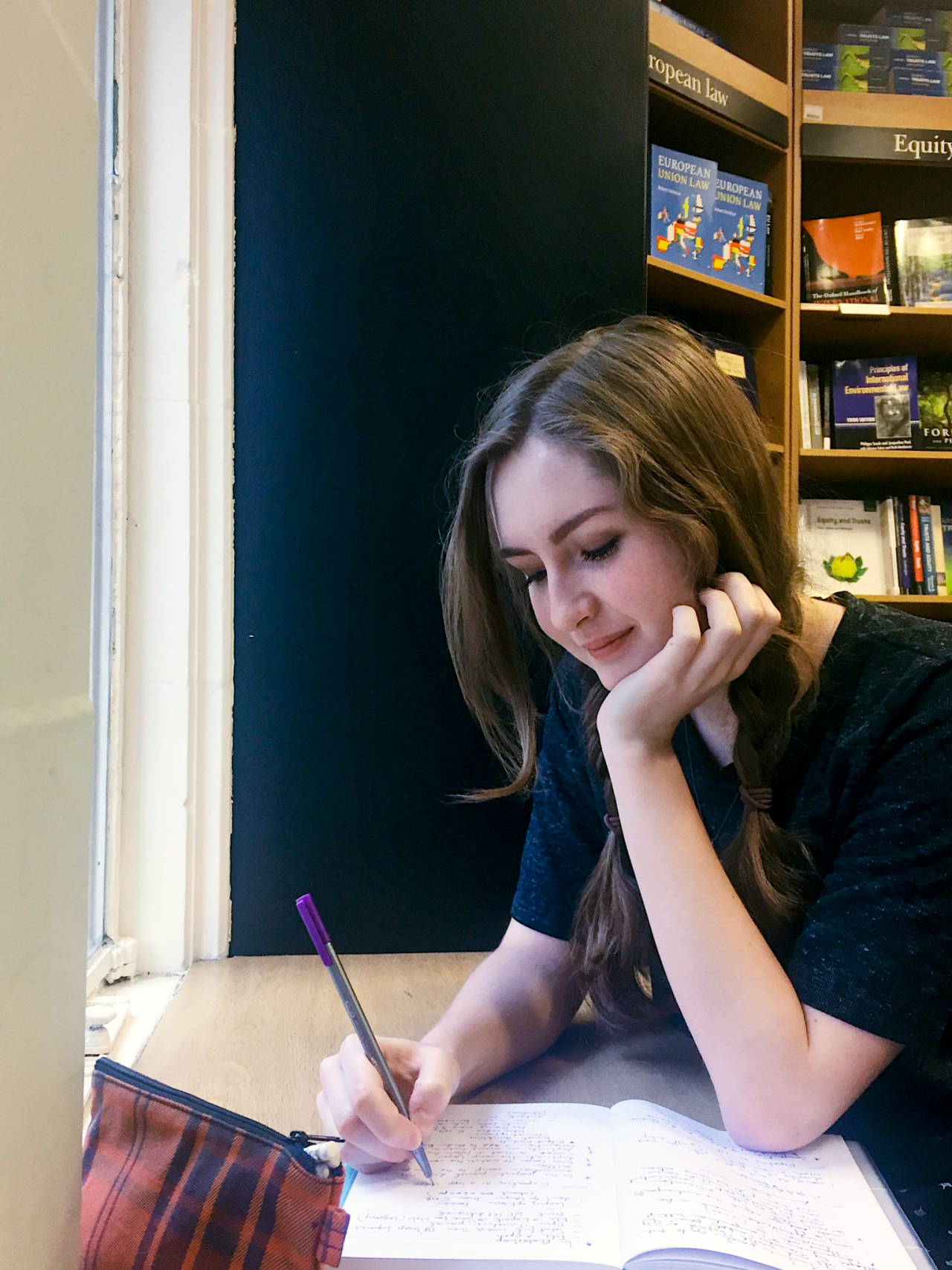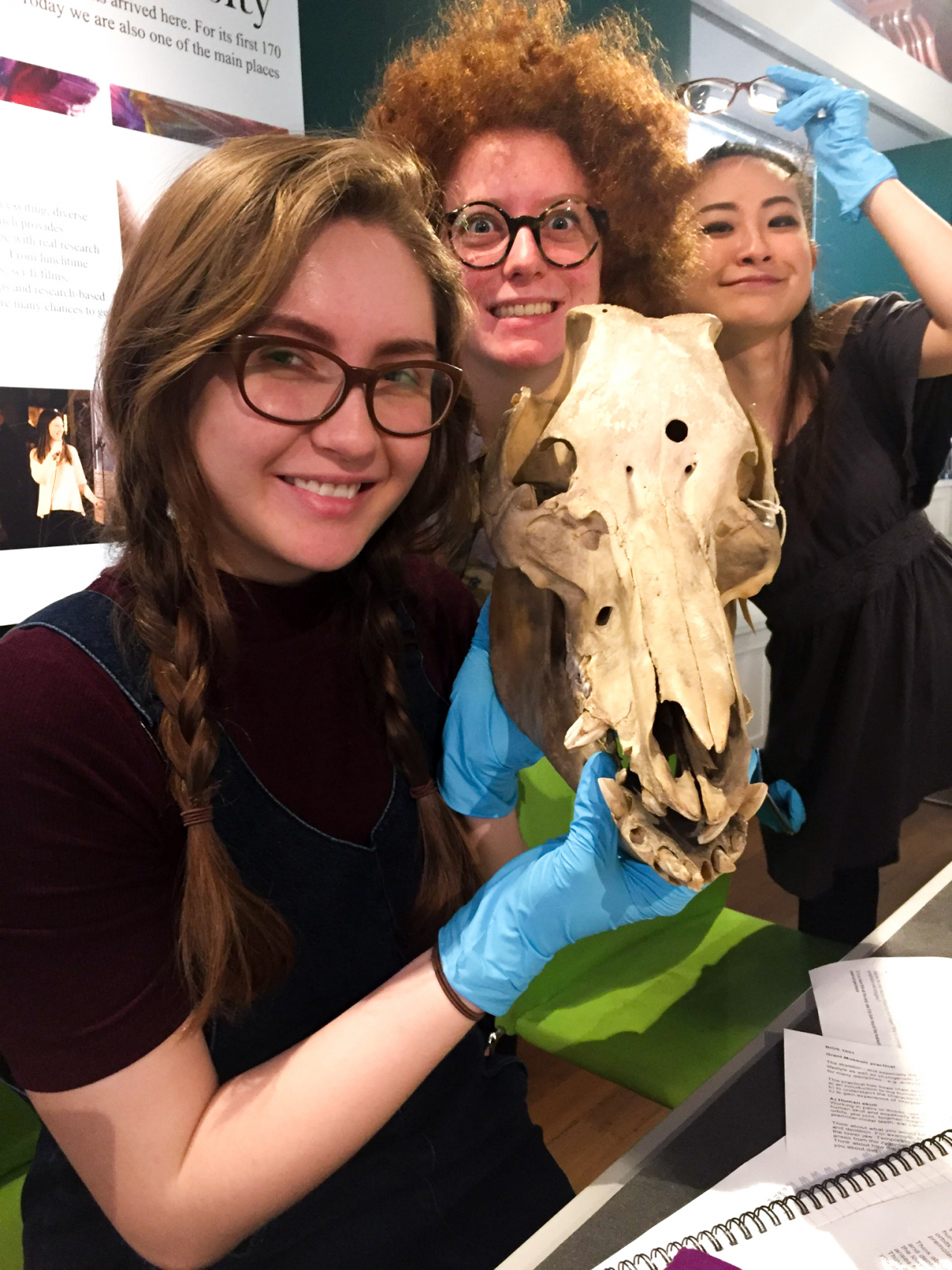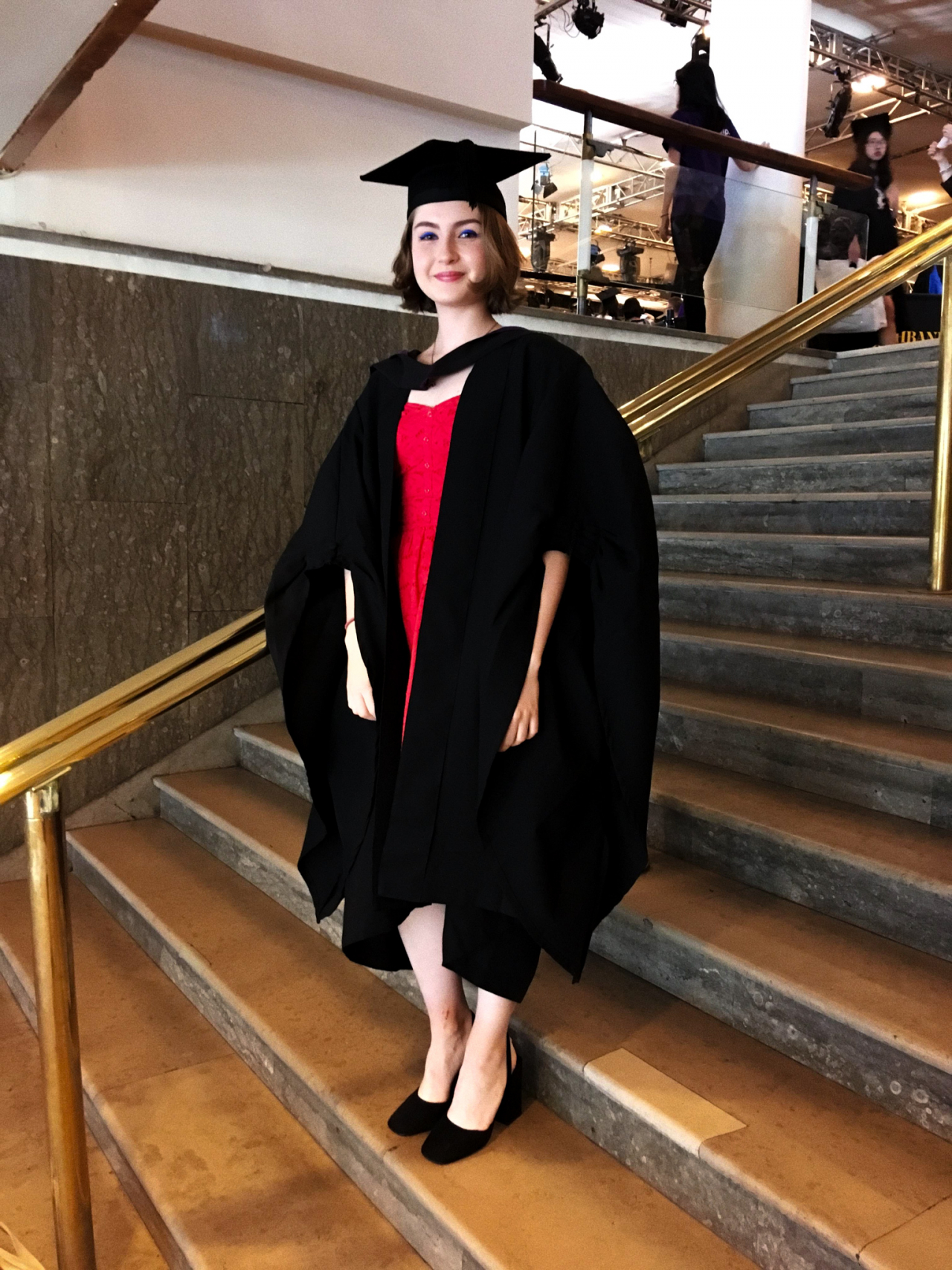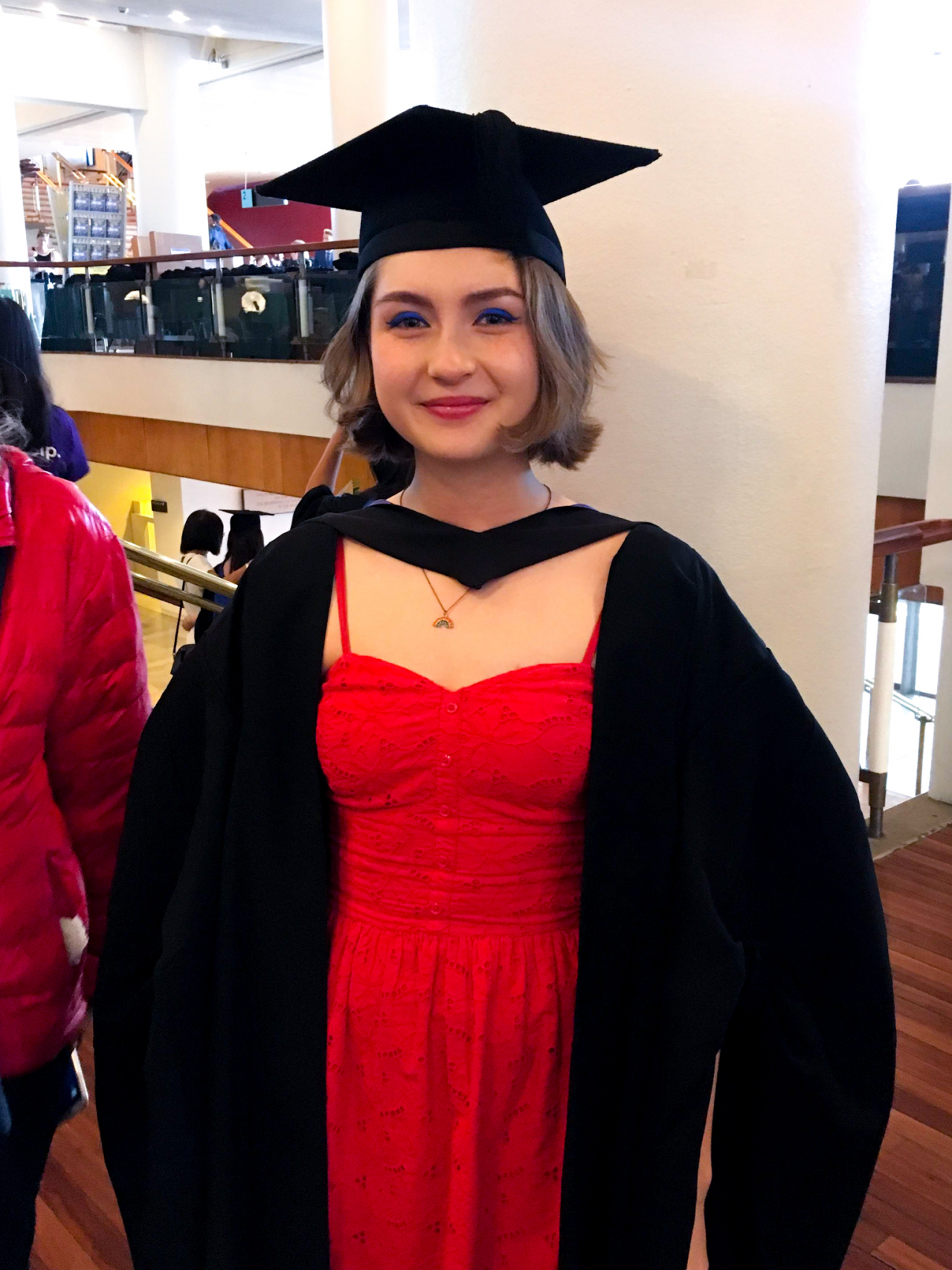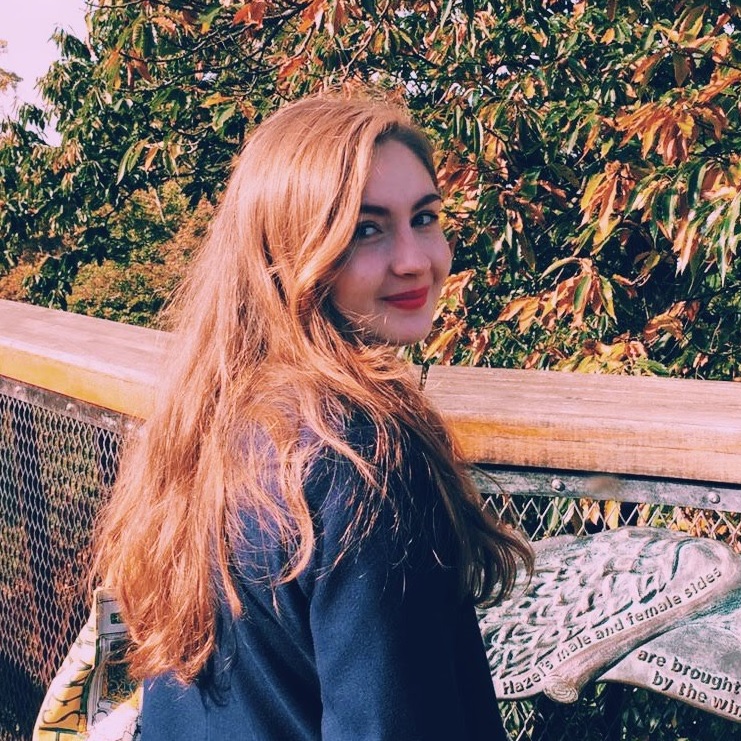
Who is best placed to tell you about their school? Of course, it is those who studyied there for many years!

- Why did you decide to join Haileybury School?
I joined Haileybury when it first opened in 2008. I was only 10 years old, so all decisions were made by my parents.
My dad often says he could not make up his mind for long. However, as soon as he walked into the school building, walked through the wide corridors and saw the tall white walls and the huge space available - he immediately realised that I should study there.
- What are the selection criteria for admission to Haileybury?
I remember the admission process rather vaguely since I was little. I remember exactly that I had to take English, maths and logic tests (something like an IQ test).
After that, I was invited to an interview with the Headmaster. I did not speak English at all, so I communicated with him through the interpreters present. The Headmaster asked about my hobbies, what I like to do in my spare time, and what subjects I like most.
How I was accepted to the school with zero English is still a mystery to me. They said they saw potential in me :)
- Does the school provide scholarships? If so, what kind of scholarships? How difficult is it to get one? What are the criteria for scholarships?
Yes, the school provides full and partial scholarships for Senior school pupils for the A-Level program.
Recruitment for scholarships 2021-2023 is now underway. Details can be found here: https://www.haileybury.kz/ru/almaty/news/the-haileybury-almaty-a-level-full-and-partial-scholarship-competition-for-2021-2023
- What are the features of studying at Haileybury?
Haileybury focuses on developing critical thinking, creativity, and versatility. Children are taught to think for themselves, develop a passion for different hobbies, and are provided with a truly inspiring education.
I will always remember the so-called 'Haileybury Habits' - several habits/values integral to the school and soon to be shared with every child. Namely, the school wants us to be: resilient, resourceful, courageous, inquisitive, organized, and reflective.
We were taught to have the courage to take risks, to learn from failures, to look at things as challenges rather than problems, and to be persistent on the path full of difficulties.
- What is the difference between Haileybury and other educational institutions?
Haileybury is a school with a truly holistic education. Although the academic load is rather serious, it is balanced with the development of versatility and character. The school aims to educate diverse, active, and moral citizens of the world; leaders who want to create meaningful change in the world.
Children have a ‘growth mindset’ - people with this way of thinking believe that they can learn anything if they want to. This is the opposite of 'fixed mindset', in which people believe that all their traits - mind, skills, abilities - are fixed. They are afraid of challenges and changes, and see every failure as proof of their inadequacy. While people with a growth mindset view failures as opportunities for growth. For them, mistakes are an important experience, without which it is impossible to move forward.
I clearly remember that mistakes and failures were treated very positively at school. This was very rare in traditional schools where I studied before Haileybury. Mistakes were an integral part of the success process, and we were constantly forced to go beyond the comfort zone - to try something new, to be able to accept criticism, and to love challenges.
It is also very important for the school to teach children to think for themselves, form their own opinions and critically analyse information. There are no such tasks as memorizing a poem - I remember doing this a lot in past schools and I hated it violently - or memorising an endless list of facts. We did tasks that involved our imagination, interpretation, problem solving. A few tasks that I distinctly remember: put myself in the character's place and rewrite the end of the story from his or her point of view; make a short documentary about the theory of evolution; move back into the past and produce a newspaper about a past historical moment. Even during laboratory experiments, pupils are always asked why a particular stage is performed in this way, how they would improve the process, and what limitations the experiment has.
There are also plenty of opportunities to develop as a leader -any pupil can become a Headboy/Headgirl, captain of their "House", try themselves as a director, or captain of a sports team.
- How was a typical school day at Haileybury?
In Secondary and Senior schools, the general structure is the following: school starts at 8 am, then there is a tutor time or a general assembly. At the assemblies, announcements and presentations were made, and distinguished guests were invited to give inspiring and informative lectures on various topics. Then, all day lessons until 15: 30, with breaks for breakfast (10: 50), and lunch (13:20). Immediately after the end of lessons - afternoon snack. Extracurricular activities are from 16:00 till 17:00.
There are also “free” lessons during the day in Senior school - independent lessons, without a teacher.
- How long did the study take? Did you have to study extracurricularly to learn the material?
When I was in Secondary school, I did a lot of extra studying just because I had zero English and had to work hard to catch up.
In Senior school, you really need to spend a huge amount of time studying, especially during the preparation for exams. Since students are taught to be responsible, most learning happens outside school - teachers are more like mentors than supervisors.
If I remember correctly, we were advised to study outside school 2/3 hours a day during exams.
- How would you assess the degree of study load? In what subjects do you think the school provides the best education?
The academic load is good. Enough to ensure academic success, but at the same time leaving a reasonable amount of time for extra-curricular activities. In my senior year, even during exams, I had time to practice sports, read for fun and take evening courses several times a week.
I cannot say that in some subjects the school provides better education than in others. In line with the school's mission to provide the most holistic education possible, children are helped to achieve heights in a wide range of fields - it does not matter whether a child wants to be an engineer, entrepreneur, Premier League footballer, artist, or a diplomat.
- What was your favourite class at school? Why?
I liked English literature the most, as it often forced me to step out of my comfort zone, look at things outside the box, and be creative. We were given the most creative tasks that seemed overwhelming, but at the end were rewarded with exceptional feelings of achievement and satisfaction. I remember spending several hours writing poetry, scripts, short stories. We created magazine covers, shot time-lapse films and commercials, and staged plays. In general, you never get bored.
- What is your warmest memory of the school?
The warmest memory, perhaps, is from my senior year. Haileybury provided several full university scholarships and I was called in for an interview. After my presentation, barely holding back tears, I listened as the school management team told me how proud they are of me - how well I embody the values of the school and how much I have contributed to the development of the school community.
All 8 years at school flew before my eyes - how hard it was for me at the beginning - to the point that every day I did my homework through tears; how hard I tried to catch up on my knowledge and gradually, day after day, my grades improved; how I rose from the status of a weak pupil to being able to get a scholarship at one of the best universities in the world.
At that moment, I thoroughly realized that all my efforts were worth it, that I can be truly proud of myself. This is the warmest and most significant memory not only from school, but from my life.
- What is the most unpleasant or embarrassing memory associated with school?
The most unpleasant memory: when I received a rejection letter from the Oxford University. I put a lot of effort into my application, dreamed of applying every day, and the school even helped me fly to Oxford for an interview. It was one of the biggest disappointments of my life at that time, and I was terribly ashamed not only in front of myself, but also in front of everyone who believed in me and supported me - family, friends, teachers.
However, at school I was immediately made to understand that this is just another failure on the way to success from which you need to learn lessons and persevere. I was helped to understand that this rejection does not define me as a person, and does not mean that I am a worthless loser who will never achieve anything (as I thought at the time). Take a break, show some compassion for yourself, learn your lessons, and continue in the same way.
Now, 4 years later, I am immensely grateful for this rejection. I don't think Oxford would really suit me, and I would never trade my University (UCL) for another one.
- What events took place at school? Were you involved in co-curricular activities - school organizations/clubs/sections?
In school, we had an active life – constant initiatives, presentations, lectures, competitions. All of the pupils are divided into 4 “Houses” (just like in Harry Potter’s movie) and competitions are regularly being held between them. The main 2 events of year is – Sports day and Music contest. During the Sports day, pupils compete in sports such as long jump, shot put, and javelin throw. Each house prepares several music numbers for the Music contest and performs in front of the entire school.
Aside from that, there is an abundance of co-curricular activities such as: basketball, knitting, chess club, gymnastics, movie, creative writing, debates… By the way, they are mandatory. At least in secondary school. I remember we had to choose at least 3 clubs. Personally, I was part of a science club, a gardening club (not cool at all, I know), and a school newspaper.
- How would you describe the social life at Haileybury?
Haileybury has an extremely busy social life. The school is quite small in terms of the number of students, therefore, I truly feel as a member of community – everyone knows and supports each other. Teachers enthusiastically spend time with pupils outside the class – they play table tennis, football, and socialize with each other. Helping others in our school is strongly encouraged and welcomed, so there are many opportunities for volunteering. For instance, several times a week, during lunch, I read books to children from Junior school. There is also a mentoring program in which Senior school pupils support and mentor younger pupils.
- How would you describe the community of pupils at Haileybury?
I have described it a lot in the previous question.
Haileybury pupils are incredibly diverse. Everyone has their own interests, hobbies, and goals that the school helps to develop and achieve. You constantly learn something new from each other and admire how extraordinary and different your peers can be. Everybody has a sense of purpose, perseverance, and ambition, especially in Senior school.
- With what results did you finish school? What did you do after graduation?
I graduated with aA*AA grades in 2016 and with a scholarship from the school I managed to get admitted into the faculty of Human Sciences at the University of College London (UCL), which I have also graduated with excellent grades (First Class Honours) back in 2019.
From graduation to the present day, I have worked for a charity foundation that supports the education of children in low-income communities, provides scholarships for women to study in business schools, and scholarships for students in the world's leading universities.
